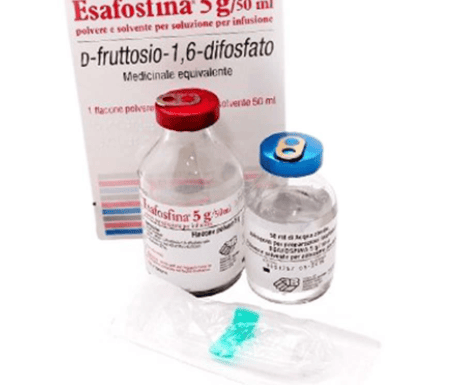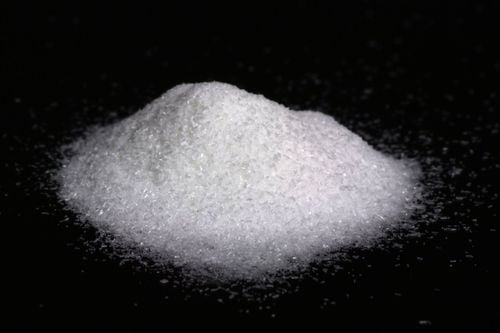This is an automatically translated article.
Eating a lot of MSG has been linked to asthma, headaches and even brain damage. However, there is still no convincing evidence for the ill effects of MSG if eaten at recommended dosages.1. What effect does MSG have?
Monosodium glutamate (English: monosodium glutamate, abbreviated MSG) is commonly known as MSG or MSG. This is a common food additive used to enhance flavor.MSG is derived from the amino acid glutamate or glutamic acid, which is one of the most abundant amino acids in nature. Glutamic acid is a non-essential amino acid, which means the body can produce it on its own. This amino acid has different functions in the body and is present in most foods.
Chemically, MSG is a white crystalline powder resembling table salt or sugar. It combines sodium and glutamic acid, known as the sodium salt. The glutamic acid in monosodium glutamate is made by fermenting starch, but there is no chemical difference between glutamic acid in monosodium glutamate and glutamic acid in natural foods. However, the glutamic acid in MSG may be easier to absorb because it is not part of large protein molecules, so the body can absorb it directly without having to destroy these protein molecules.
MSG enhances the delicious, meaty (umami) taste of food. Meat sweetness is the fifth basic taste, along with salty, sour, bitter and sweet. MSG is very common in Asian recipes and is used in various processed foods in the West.
The average daily intake of MSG is 0.55–0.58 grams in the US and UK and 1.2–1.7 in Japan and Korea.
2. Is it good to eat MSG?
Glutamic acid functions as a neurotransmitter. This is an excitatory neurotransmitter, which means it stimulates nerve cells to relay its signal.Some people believe that eating a lot of MSG leads to glutamate in the brain and overstimulation of nerve cells. For this reason, MSG has been labeled an excitotoxin (the name for the group of substances that damage the nervous system). The fear of MSG dates back to 1969, when a study found that injecting large amounts of MSG into newborn rats caused harmful neurological effects.
Since then, books like Russell Blaylock's "Excitotoxins: The Taste That Kills" have "added fuel to the fire," fueling the fear of MSG.
It is true that increasing glutamate activity in your brain can be harmful and large doses of MSG can increase blood levels of glutamate. In one study, one megadose of MSG increased blood levels by 556%. However, dietary glutamate often has little or no effect on your brain, as it cannot cross the blood brain barrier.
Overall, there is no convincing evidence that MSG acts as a stimulant when consumed in normal amounts.

Ăn bột ngọt có tốt không là câu hỏi được nhiều người quan tâm
3. Some people are sensitive to MSG
Some people may experience side effects from consuming MSG. This condition is called MSG symptom complex. Symptoms include headache, muscle tension, numbness, tingling, weakness, and flushing. The threshold for causing symptoms appears to be about 3 grams per meal. However, 3 grams is a very high dose, about 6 times the average daily intake in the US.It's not clear why this happens, but some researchers speculate that large doses of MSG allow small amounts of glutamic acid to cross the blood-brain barrier and interact with nerve cells, leading to to swelling and brain injury.
Some claim that MSG also causes asthma attacks in susceptible people. In a study of 32 people, 40% of participants experienced an asthma attack with large doses of MSG. However, other similar studies did not find any relationship between MSG intake and asthma.
4. Has the FDA received any reports of MSG-related side effects?
For many years, the FDA has received reports of symptoms such as headaches and nausea after eating foods containing MSG. However, we have not been able to confirm that MSG causes the reported effects.These adverse event reports prompted the FDA to ask an independent scientific group - the Federation of American Societies for Experimental Biology (FASEB) to examine the safety of MSG in the 1990s. of FASEB concluded that MSG is safe. The FASEB report identified a number of short-term, transient, and generally mild symptoms, such as headache, numbness, flushing, tingling, palpitations, and drowsiness that may occur in some people sensitive consume 3 grams of MSG or more without food. However, a typical serving of MSG contains less than 0.5 grams of MSG. Very rarely does anyone consume more than 3 grams of MSG at once without food.

Ăn bột ngọt nhiều có mối liên hệ với tăng cân
5. Impact on taste and calories
Some foods can make you feel fuller than others. Eating filling foods will reduce calorie intake, which can help with weight loss. Some studies show that MSG can help you feel fuller. These studies noted that people who ate soups with added MSG ate fewer calories at subsequent meals.The meaty sweetness of MSG can stimulate receptors on the tongue and in the digestive tract, triggering the release of appetite-regulating hormones. That is, other studies have shown that MSG increases, but not decreases, calorie intake. Therefore, do not use MSG to help yourself feel full.
6. Eating a lot of MSG affects obesity and metabolic disorders
More human studies are needed before full results can be drawn on the association of MSG with obesity or metabolic disorders.Some people think that eating more MSG is associated with weight gain. In animal studies, rats given high doses of MSG into the brain became obese. However, this is rarely the case, if at all, it is often related to MSG in the human diet. That said, several human studies show a correlation between MSG consumption and weight gain and obesity.
In China, meals with a high amount of sweet foam are thought to cause weight gain - with average intakes ranging from 0.33–2.2 grams per day. However, a study in Vietnamese adults showed that consuming an average of 2.2 grams per day was not associated with being overweight.
Another study linked higher MSG intake to weight gain and metabolic syndrome in Thailand - but was criticized by researchers for methodological flaws. In a controlled human trial, MSG increased blood pressure and increased the frequency of headaches and nausea. However, this study applied an unrealistically high threshold. Therefore, more human studies are needed before full statements can be made regarding the association of MSG with obesity or metabolic disorders.
In short, each person has different views about whether it's okay to eat a lot of MSG, because some people think that this food additive is good, but many people are afraid of the bad effects. Research shows MSG is safe if taken in moderation and, of course, large amounts can be harmful. If you have noticed adverse reactions to foods containing MSG, stay away from it. MSG is often added in low-quality, processed foods - which you should avoid or limit. You won't have to worry about consuming a lot of MSG, if you already have a well-balanced diet with lots of whole foods.
Please dial HOTLINE for more information or register for an appointment HERE. Download MyVinmec app to make appointments faster and to manage your bookings easily.
References: healthline.com, fda.gov












